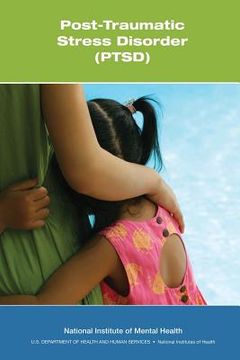Synopsis "Post-Traumatic Stress Disorder (PTSD)"
PTSD is an anxiety disorder that some people get after seeing or living through a dangerous event. When in danger, it's natural to feel afraid. This fear triggers many split-second changes in the body to prepare to defend against the danger or to avoid it. This "fight-or-flight" response is a healthy reaction meant to protect a person from harm. But in PTSD, this reaction is changed or damaged. People who have PTSD may feel stressed or frightened even when they're no longer in danger. Anyone can get PTSD at any age. This includes war veterans and survivors of physical and sexual assault, abuse, accidents, disasters, and many other serious events. Not everyone with PTSD has been through a dangerous event. Some people get PTSD after a friend or family member experiences danger or is harmed. The sudden, unexpected death of a loved one can also cause PTSD. PTSD can cause many symptoms. These symptoms can be grouped into three categories: 1. Re-experiencing symptoms: Flashbacks-reliving the trauma over and over, including physical symptoms like a racing heart or sweating; Bad dreams; Frightening thoughts. Re-experiencing symptoms may cause problems in a person's everyday routine. They can start from the person's own thoughts and feelings. Words, objects, or situations that are reminders of the event can also trigger re-experiencing. 2. Avoidance symptoms: Staying away from places, events, or objects that are reminders of the experience; Feeling emotionally numb; Feeling strong guilt, depression, or worry; Losing interest in activities that were enjoyable in the past; Having trouble remembering the dangerous event. Things that remind a person of the traumatic event can trigger avoidance symptoms. These symptoms may cause a person to change his or her personal routine. For example, after a bad car accident, a person who usually drives may avoid driving or riding in a car. 3. Hyperarousal symptoms: Being easily startled; Feeling tense or "on edge"; Having difficulty sleeping, and/or having angry outbursts. Hyperarousal symptoms are usually constant, instead of being triggered by things that remind one of the traumatic event. They can make the person feel stressed and angry. These symptoms may make it hard to do daily tasks, such as sleeping, eating, or concentrating. It's natural to have some of these symptoms after a dangerous event. Sometimes people have very serious symptoms that go away after a few weeks. This is called acute stress disorder, or ASD. When the symptoms last more than a few weeks and become an ongoing problem, they might be PTSD. Some people with PTSD don't show any symptoms for weeks or months.

